8 crazy Japanese games you can buy right now
Theyre coming to America
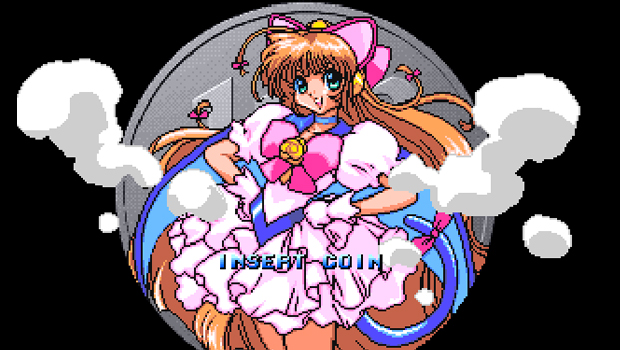
As an English-speaking fan of quirky, Japanese games, I sometimes get frustrated at the number of interesting, oddball titles that never get brought over to the US. But Im not going to get sad about all the interesting games that are denied me (and GamesRadar has covered that already). Instead, Im going to focus on all the weird Japanese titles that most PS3 and Vita owners dont even realize they could be playing right now, no region blocking or translation necessary.
Starting a few years ago, Sony began allowing publishers to release Japanese PSOne titles internationally on PSN. These are games that never got released in the US or Europe during the original PlayStation's lifespan, and thus havent been translated, which only makes their premises even weirder. These strange titles often get lost in the dense catalogue of games you can download on the PS3, Vita, and PSP, but with this handy guide, you can discover Japanese rarities without ever leaving the comfort of your home.
Makeruna! Marekendo 2
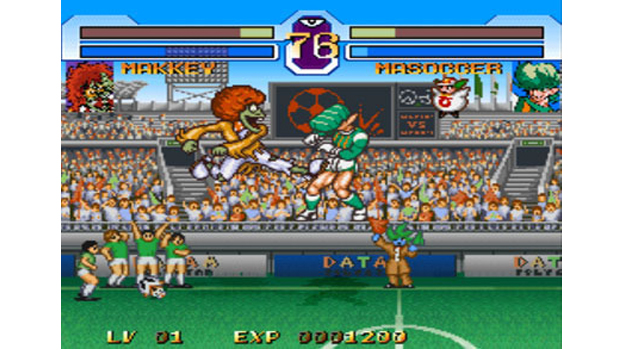
Street Fighter II changed gaming in the early 90s, and the effects were still being felt into the PlayStation era, as this PSN import attests. Makeruna! Marekendo 2 is a sequel to the US SNES release Kendo Rage, and like the original, its a colorful 2D brawler with a ludicrous premise. For example, the roster is a paltry eight, but its full of personality, including a zombie, a wasted musician, and a ballerina.
And just what are all these characters fighting over? The position of Prime Minister for all monsters. Japanese high school girl Hikaru battles her way to the top of this political battle using all the skills she picked up in her schools kendo (aka sword fighting) club. If you want to better understand it, you could watch the fan-translated anime tie-in, though I promise you dont need to know any of the plot to enjoy the silly combat and wacky transformations.
Finger Flashing
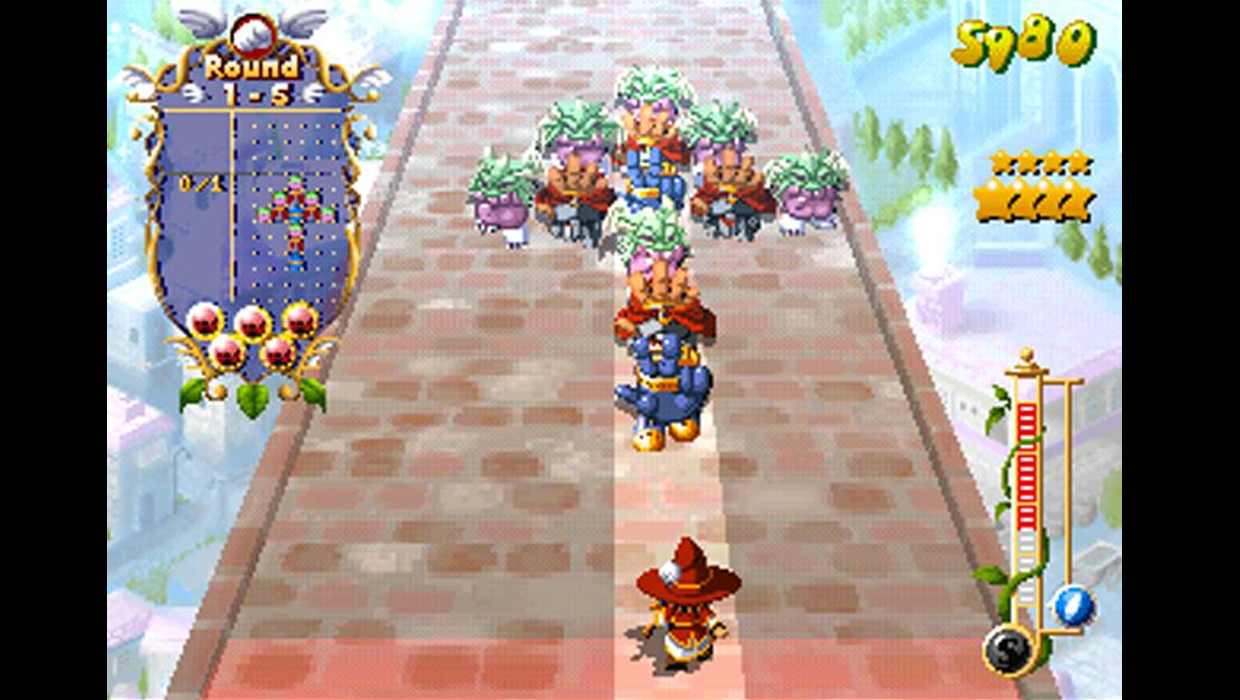
Heres an import based on Japanese customs that will make sense to most American gamers. Finger Flashing is based on Rock, Paper, Scissors, the three-sided hand signal game known as Janken in Japan. Finger Flashing applies that simple-yet-nuanced strategy game into a story of a witch who kills monsters by throwing the opposing gesture at the oncoming enemy. And it all plays a bit like Guitar Hero--so yes, Id say this deserves to be on this list.
The fantasy shooters controls are pretty quick to comprehend, as enemies keep running down the six different auto-scrolling lanes and you press one of three attack buttons to counter their rock, paper, or scissor natures and make them vanish. The number of enemies quickly ramps up, and the rhythmic pace sets in just as Finger Flashing implements some clever techniques to obscure enemies behind different types of shields and scenery. The twitchy action translate to any language, so this should be one of your first import PSN purchases.
Double Dragon
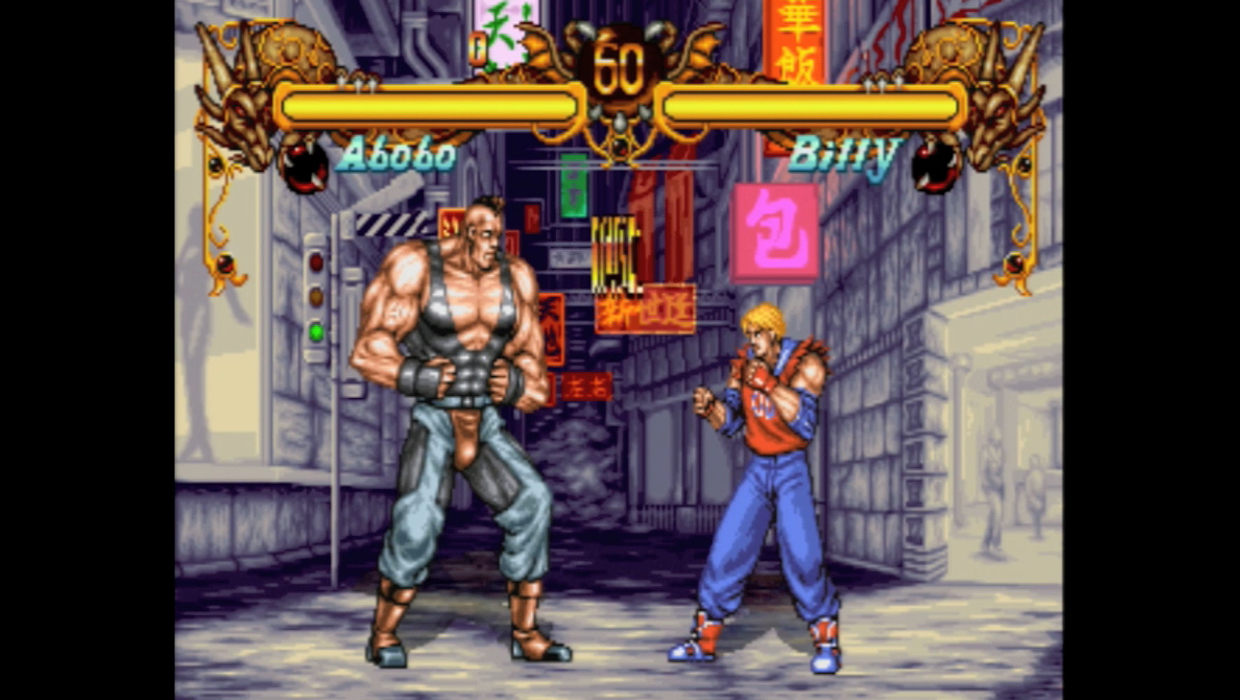
Now heres a game with a very strange journey to the west. The original Double Dragon and its sequels had a ton of success in America, popularizing two-player brawlers in US arcades and on the NES. It was famous enough that the franchise got made into a live-action film in 1994. The movie Double Dragon was, well, so horrendously bad that even Alyssa Milano and the guy that played the T-1000 couldnt save it. Even stranger than the casting was the fact that the box office bomb actually had a tie-in game that didnt see release in the US until 2014.
Weekly digests, tales from the communities you love, and more
Recently imported to PSN by Monkey Paw Games, the Double Dragon movie game ditches the brawling to make a one-on-one 2D fighter that came first to Japanese arcades, NEO-GEO, and finally the PlayStation. Double Dragon regulars like Billy, Jimmy, and Abobo look sort of look like their film counterparts, and stages replicate some of the films settings--but youd have to have seen the neon monstrosity of a motion picture to fully appreciate it. The curiosity factor makes this worth downloading, and retro fans might also be drawn in by the fact that this was the last Double Dragon title developed by Technos before the company shut down in 1996.
Money Idol Exchanger
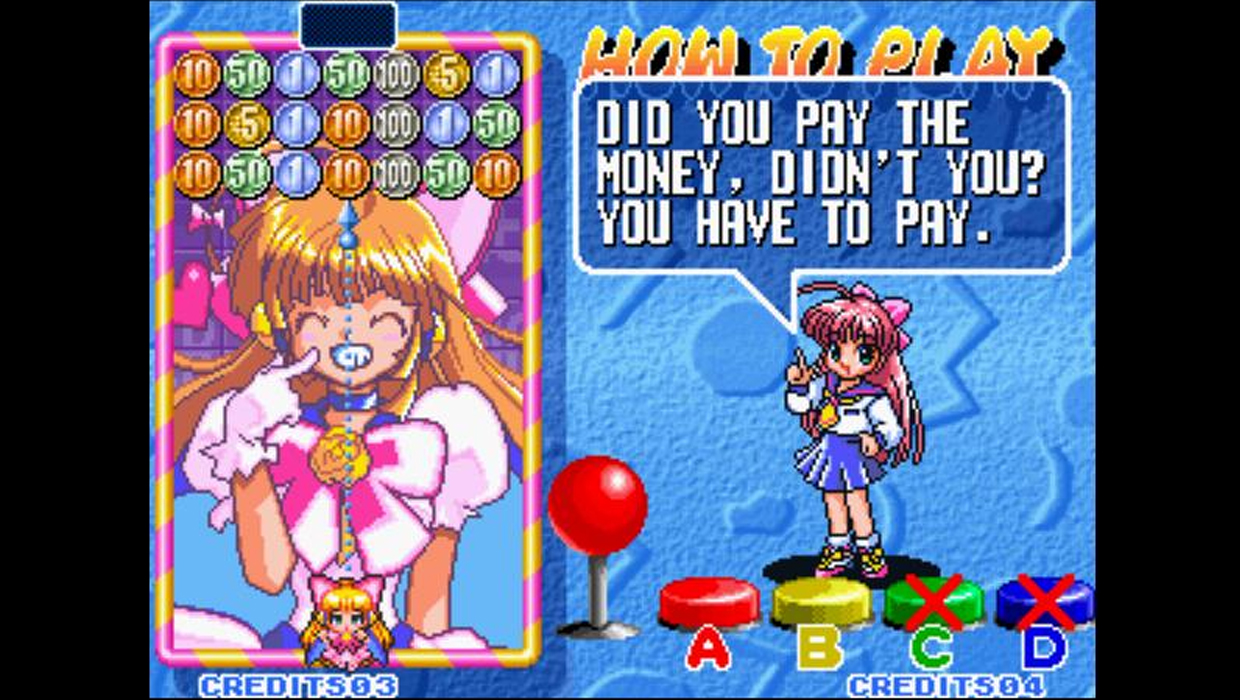
Planning on taking a trip to Japan any time soon? Then youll want to learn about the currency, particularly the coins, because spare change is way more useful there than it is in the US. Standard coins go up to 500 (roughly $5), so its worthwhile to learn how to tell them apart--and who better to teach you than a group of chirpy anime girls locked in puzzle-based combat?
Money Idol Exchanger is similar to stacking games like Puzzle Bobble, meaning pieces keep dropping from the top and you have to fling matching pieces to eliminate them. The key difference here is that the puzzle blocks are 1, 5, 10, 50, and 100 yen coins that you have to keep adding together until they can be eliminated as 500 coins. It takes a lot of quick addition to win at this game, and the speedy puzzle action will keep you glued to Money Idol Exchanger long after the novelty of the quirky characters wears off.
Mega Man 1, 2, and 3
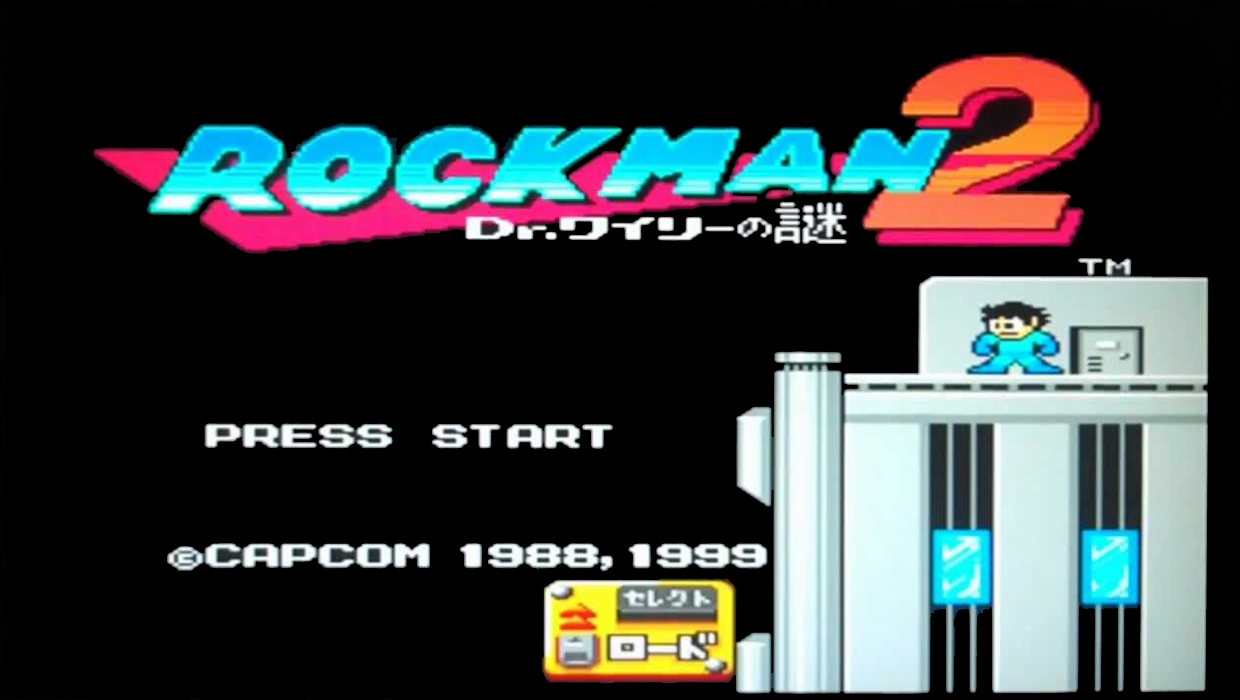
Whats so weird about Mega Man, you say? The original Mega Man titles can be found on the 3DS, Wii U, and Wii eShop any day of the week. Very true, but if youre a Sony devotee, the only way you can play the original trio of NES Mega Man titles is to pick them up, untranslated, in the form of some PSOne ports from 1999.
In an odd move, Capcom brought these 8-bit-via-32-bit classics to the US completely unlocalized, still under their native Rockman name and everything. Once you can get through the Japanese text in the opening menus, youll be dropped into the iconic platformers that work just like you remember, even with the English text. And that extra work of navigating the intro screen is worth the time just to see the colorful new character art Capcom created for these rereleases.
Cho Aniki
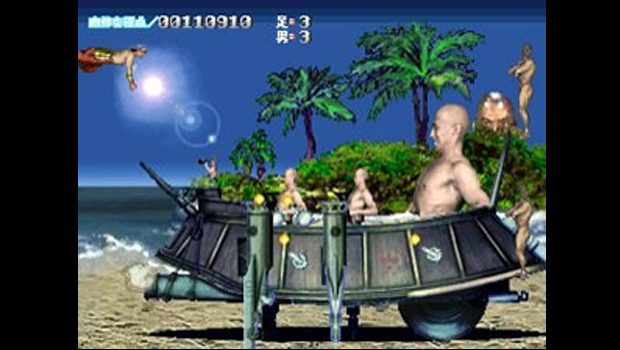
Yes, the PSN store hosts the original Cho Aniki, also known as the source of well-oiled poster boys for Japanese oddities. The game was famous with western gamers for its humorously risque approach to homoeroticism, leaving many intrigued and a little confused by Cho Anikis interest in nearly nude men that fly through a sidescrolling shoot em up. But when you play the Gradius-inspired game, youll see that nudity is just the beginning of Cho Anikis madness.
The version on the PSN shop is technically a port known as Cho Aniki - Kyuukyoku Muteki Ginga Saikyou Otoko, and its got added weirdness thanks to its use of digital photography for its graphics instead of the hand-drawn pixels of the first game. The muscular heroes fly through space shooting disembodied heads, terrorists, and whatever other insanity the developers could cobble together. If you want to be a complete gamer, you should experience Cho Aniki at least once, and this downloadable import is one of the easiest ways to pick it up.
The Firemen 2: Pete & Danny
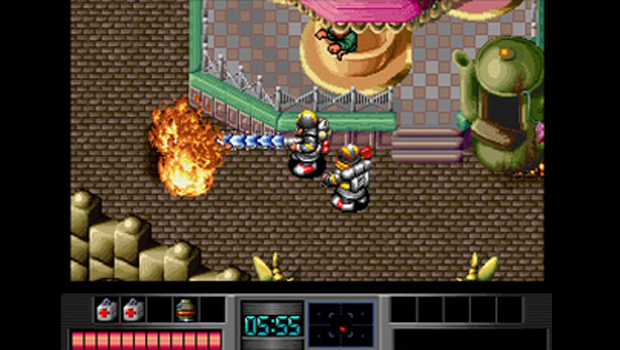
First off, were you aware that there was a firefighting action game for the Super NES that saw release in Japan, Europe, and Australia but not the US? If not, then youll be even more perplexed to discover that the game got a 1996 sequel on the PSOne that was exclusive to Japan. That release is The Firemen 2: Peter & Danny, a gritty, co-op adventure that tasks players with quelling a roaring blaze at an amusement park on Christmas Eve.
The action is pretty straightforward, which is almost a must for unlocalized titles like Firemen 2. You enter a section of pseudo-Disneyland, find a victim that needs rescuing within a set time limit, then put out all the fires you can find on your way to the distressed individual. The weirdest part of this game (aside from guys named Pete and Danny talking entirely in Japanese) is that the threats stay pretty mundane. People getting burned alive is a scary enough reality; no dragons or zombies necessary.
Lup*Salad
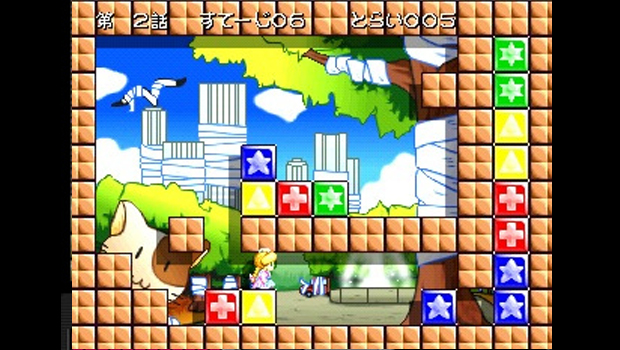
This one has the most disconnected title of the bunch, because I havent seen any in-game lettuce, croutons, or cherry tomatoes when playing this game. (If you want to be extra confused, the full title is Rupupu Cube: Lup*Salad.) What the game does have is a clever, if frustrating, puzzle platformer concept that feels ripe for a reboot.
Featuring art by Izumi Takemoto, a popular manga artist in Japan who is mostly unread in the US, Lup*Salad has more than 300 puzzles, all of which task a young lady named Salad with pushing together matching blocks. But you have to be careful what order you eliminate them, because youll also need the blocks to reach higher platforms. Theres a lot of tough trial and error beneath the deceptively cute visuals, and while the gameplay may frustrate you (in a good way), the Japanese language menus are comparatively easy to navigate.
How do you say comments in Japanese?
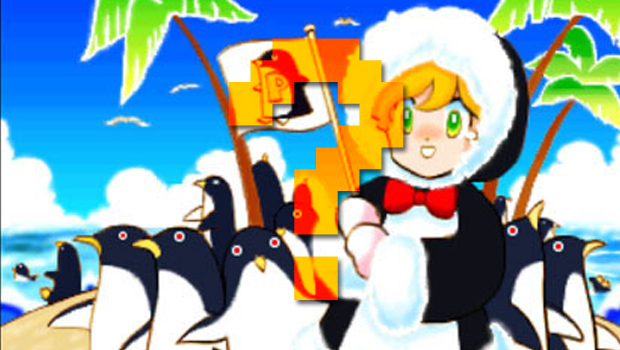
Those 10 games are a good start for your import adventures, and there are more great Japanese PSOne games beyond those. If you have any favorites that I missed, tell me about it in the comments. Im always looking for new territory to explore.
And if you're looking for more old school stuff from Japan, check out the 50 best PlayStation games and the weirdest games to ever get localized from Japan.
Henry Gilbert is a former GamesRadar+ Editor, having spent seven years at the site helping to navigate our readers through the PS3 and Xbox 360 generation. Henry is now following another passion of his besides video games, working as the producer and podcast cohost of the popular Talking Simpsons and What a Cartoon podcasts.



